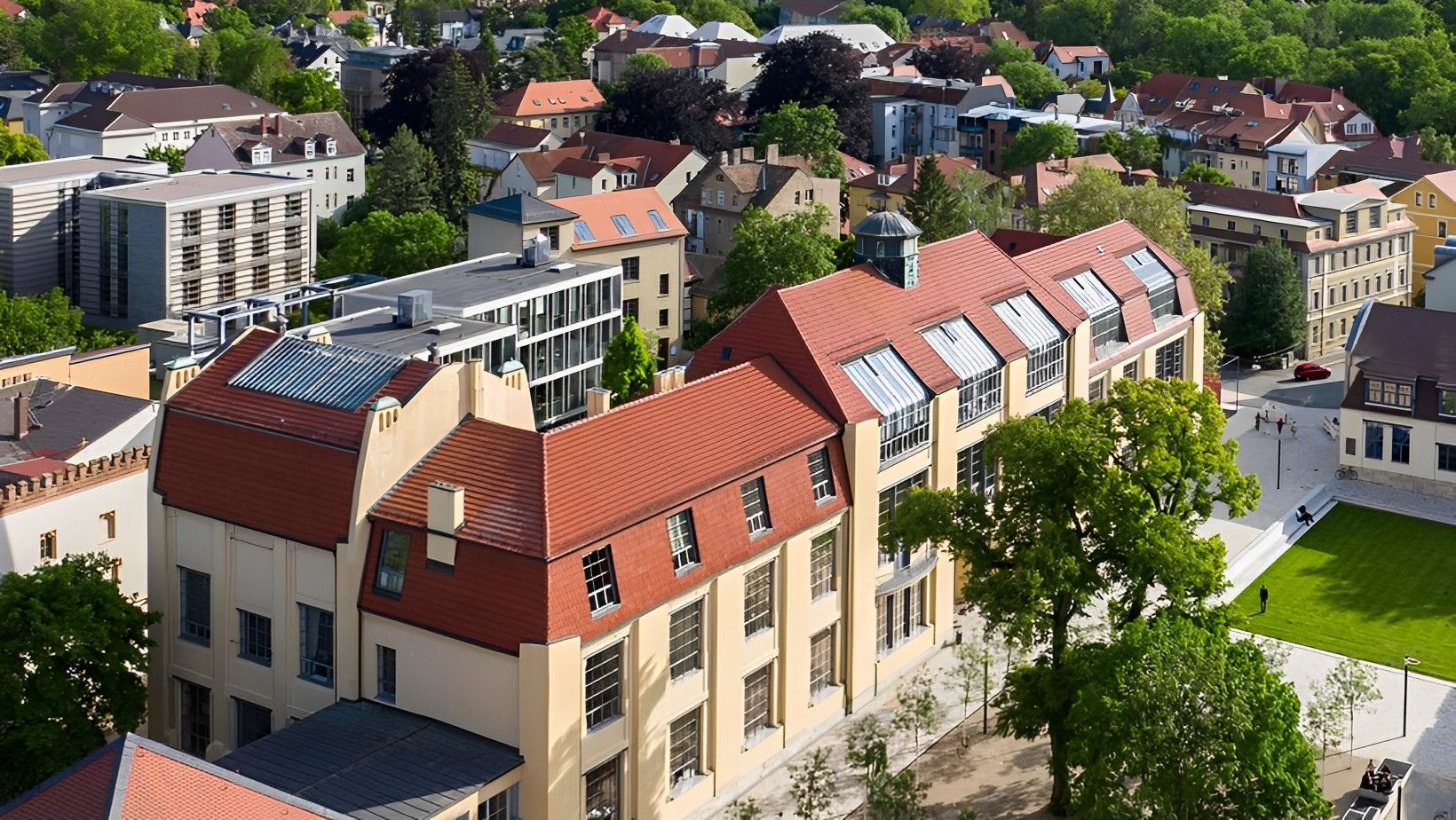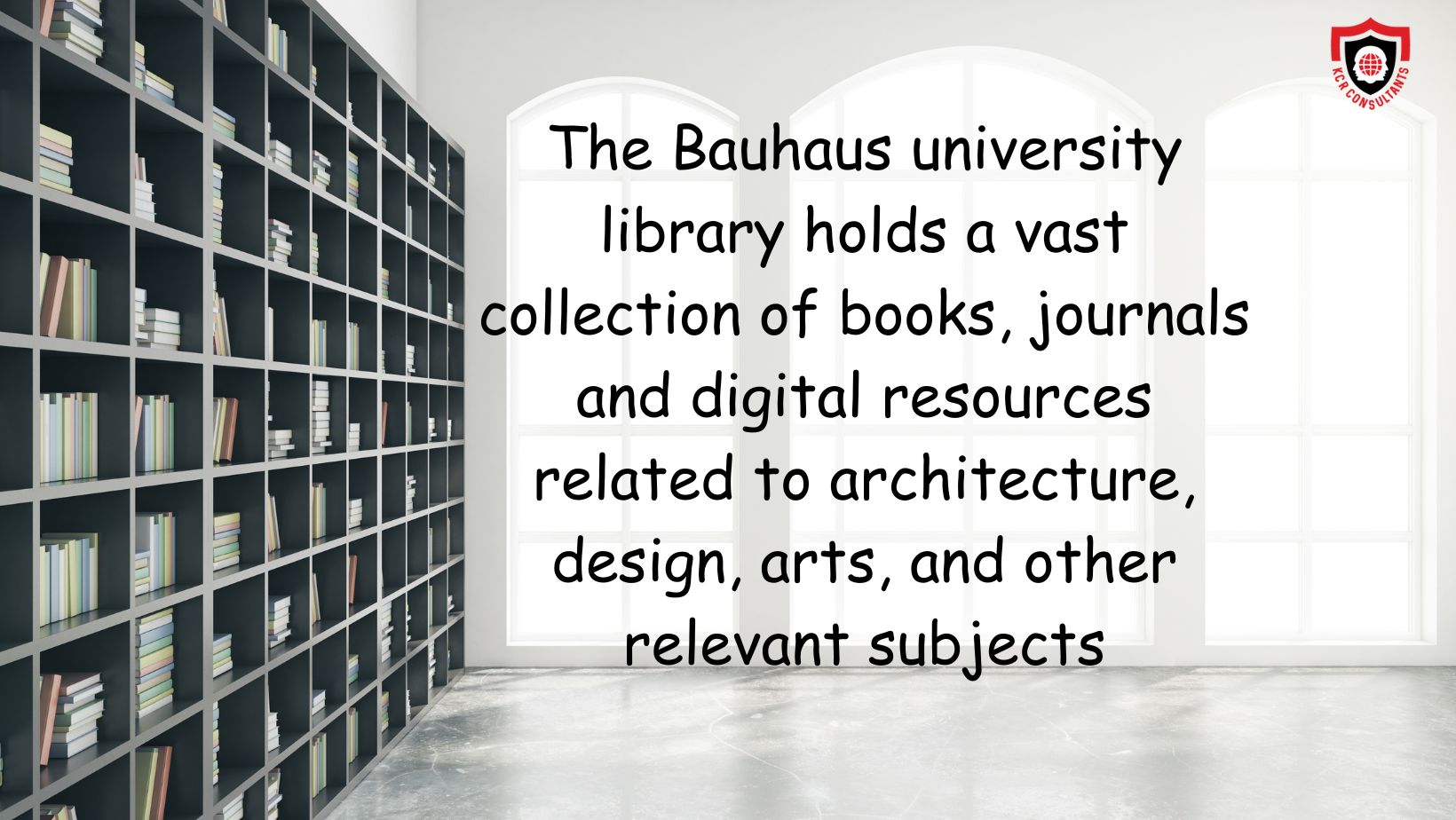Overview of Bauhaus-Universität Weimar and Its Computer Science Master's Program
Brief History and Reputation of Bauhaus-Universität Weimar
Founded in 1860, Bauhaus-Universität Weimar has evolved into a renowned institution. It carries a rich legacy of fostering innovation, particularly in art and technology. The university's motto is "Unity of Art and Technology".
The university is known for its commitment to interdisciplinary education. It offers a unique blend of courses across architecture, civil engineering, art and design, and media.

Institutional Recognition and Accreditation
Bauhaus-Universität Weimar is recognized by the Thuringian Ministry for Education, Youth, and Sport. This accreditation ensures the quality and standards of its programs are met. Several programs, including those in computer science, have received specialized accreditation from agencies like ACQUIN and ZEvA.
The university is also a member of the European University Association (EUA). This membership further solidifies its commitment to maintaining high educational standards.
Campus Life and Student Support Services
Campus life at Bauhaus-Universität Weimar is vibrant and supportive. Students have access to excellent facilities, including a well-stocked library and various sports facilities. The university offers programs to study abroad and online courses.
The university provides administrative services to assist both local and international students. It also has a career service to help students prepare for job placement, although not specified in the search results.
The Master's in Computer Science Curriculum for 2025
Structure and Duration of the Program
The Master's in Computer Science for Digital Media is a four-semester program. It can be started in either the winter or summer semester. Students can typically complete it in two years.
The program is taught entirely in English. It requires a solid foundation in computer science, with at least 90 ECTS points in mathematics and computer science.
Specializations within the Computer Science Program
The program offers various specializations. These include web technologies, virtual reality systems, and media informatics. Students can also focus on security, big data analytics, computer vision, data science, human-computer interaction, mobile media, and usability.
These specializations allow students to tailor their education. They can align their studies with their career goals and interests.
Key Subjects and Learning Outcomes
Focus Areas: Media Informatics, Human-Computer Interaction, and More
The curriculum covers a broad range of subjects. Media informatics and human-computer interaction are key focus areas. Students delve into advanced topics like big data and computer vision.

The program emphasizes the practical application of theoretical knowledge. Students learn to design and evaluate user interfaces, which is a crucial skill in today's job market.
Integration of Theory and Practical Application
The program integrates theory with practical application. Courses are designed to provide hands-on experience. Projects and collaborative work are integral parts of the curriculum.
Students engage in real-world projects, often in collaboration with industry partners. This approach ensures they are well-prepared for the challenges of the professional world.
Student Experiences and Reviews
Testimonials from Current and Former Students
Many students praise the interdisciplinary nature of the program. One student mentioned, "The blend of art and technology here is truly unique." Another student highlighted the supportive environment, stating, "The faculty really care about your success."
Alumni often highlight the practical skills they gained. "I felt well-prepared for my job," said a former student now working at a major tech company.
Faculty Support and Student-Teacher Interaction
Faculty support is a strong point of the program. Professors are described as approachable and knowledgeable. They are often involved in cutting-edge research.
Interaction between students and teachers is encouraged. Small class sizes facilitate personalized attention. Students appreciate the open-door policy many professors maintain.
Opportunities for Collaboration and Networking
The university fosters a collaborative environment. Group projects are common, allowing students to learn from each other. Networking opportunities are abundant, with events and workshops connecting students with industry professionals.

The university's location in Weimar, a city rich in cultural history, also offers unique networking opportunities. Students can engage with professionals in various fields, not just computer science.
Career Prospects after Completing the Master's Program
Job Placement Rates and Industry Connections
Graduates of the Computer Science for Digital Media program have excellent job placement rates. Many find employment in R&D departments at major companies like Volkswagen and BMW. Others secure positions at research institutes such as Fraunhofer.
The university has strong industry connections. These connections facilitate internships and job placements. The program's focus on practical skills makes graduates highly sought after by employers.
Roles and Industries Commonly Pursued by Graduates
Graduates pursue diverse roles in various industries. Common roles include UX/UI researchers, UX designers, and software developers specializing in IoS or mobile development. Some graduates also venture into VR development and design.
The skills acquired in the program are versatile. This allows graduates to work in tech, media, and even in startups. The growing IT industry in nearby Jena and Erfurt also offers numerous opportunities.
Support Systems for Job Placement and Career Development
The university offers robust support systems for career development. The startup hub neudeli incubator provides resources for those interested in entrepreneurship. It offers training, office spaces, and a pre-seed funding program.
In 2024, the university launched the "Bauhaus Career Track - Local Networks for Global Talents" program. Funded by the DAAD, this initiative aims to ease international students' access to the German job market. It includes German language courses, job coaching, alumni mentoring, and career fairs.
Conclusion: Is Bauhaus-Universität Weimar the Right Choice?
Key Factors to Consider Before Applying
The application deadline for the winter semester is September 30th. For the summer semester, it is March 31st. Applicants from outside the EU must apply via www.uni-assist.de by July 15th for winter and January 15th for summer.
Applicants need a relevant Bachelor of Science degree. This can be in computer science, computer engineering, or related fields. A minimum GPA of 2.0 in the German system is required.
Proof of English proficiency is mandatory. Accepted tests include TOEFL (minimum 85 points) and IELTS (minimum 6.5). If your bachelor's was in English from an English-speaking country, this requirement may be waived.

Final Thoughts on the Value of the Program in 2025
Bauhaus-Universität Weimar offers a unique, interdisciplinary Master's in Computer Science. It blends theoretical knowledge with practical application. The program prepares students for diverse career paths in technology and media.
The university's strong industry connections and career support systems enhance job prospects. Its rich campus life and supportive faculty further enrich the student experience. For those seeking a comprehensive and forward-thinking education, this program is an excellent choice for 2025.
It is a good choice to consider studying at Bauhaus-Universität Weimar, similar to other universities like LMU Munich, TU Berlin, the University of Bonn, TU Hamburg, and the University of Passau.
Key Takeaways:
- Comprehensive Curriculum: Covers web technologies, VR, media informatics, security, big data, computer vision, and human-computer interaction.
- Strong Industry Connections: High job placement rates with companies like Volkswagen, BMW, and Fraunhofer.
- Interdisciplinary Approach: Combines art and technology, reflecting the university's heritage.
- Supportive Environment: Excellent faculty support, vibrant campus life, and career development services.
- Global Recognition: Accredited programs and membership in the European University Association.
